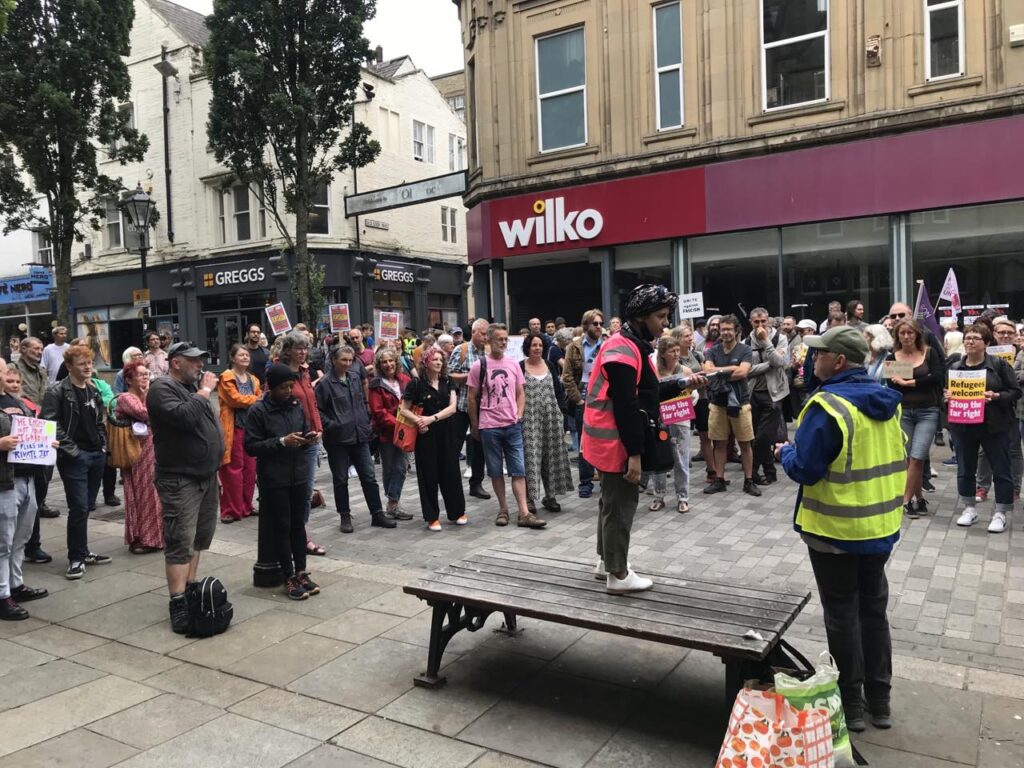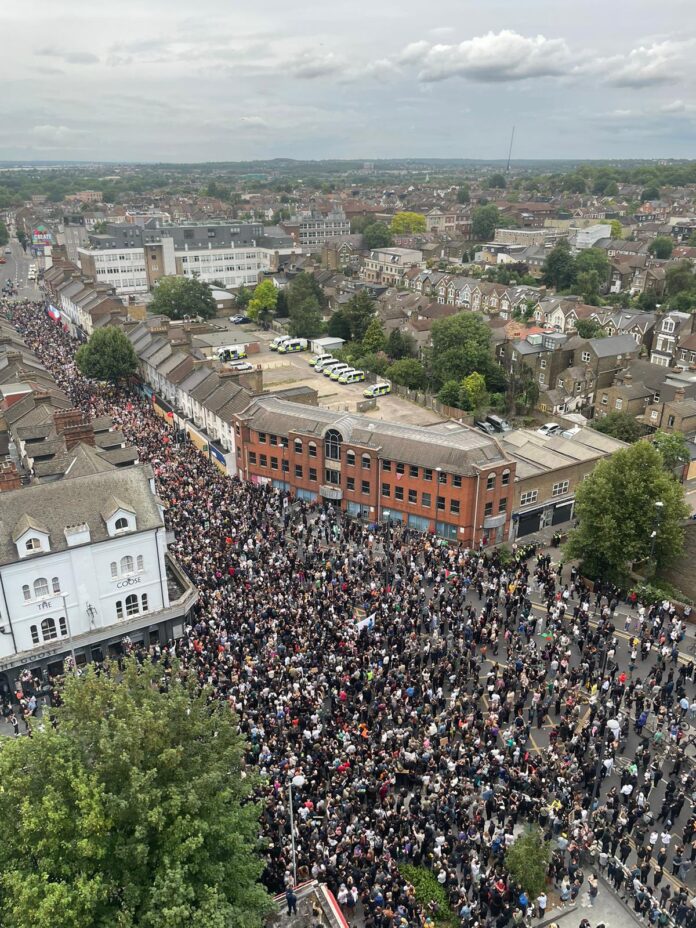The response to the far-right riots, previously reported by Internationalist Standpoint has been loud and clear. Refugees are welcome here has been the slogan and the overwhelming majority of the British people would sympathise with that sentiment. According to a survey conducted in 2021 by The Migration Observatory, only 33% of British people think immigration is a bad thing, with only 19% believing it should be limited to none or just a few migrants. In the same survey, only 17% believed that migration made Britian a worse place to live. Not for the first time, this shows the thinking of the British people to be way ahead of its political elite and also more progressive in terms of attitudes to migration levels, than all other EU countries listed in the survey. Interestingly, the only countries with a more progressive view of both aspects of migration included in the survey, were Norway and Iceland – neither are members of the EU.
The problem in the UK is that the main political parties, including the Labour Party, promote the narrative that migration is getting out-of-hand and that firm measures need to be taken in order to counter it. This has given the far-right confidence and Nigel Farage, the leader of Reform, alongside other far-right voices has been allowed to talk up far-right hysteria in what amounts to incitement to racial hatred. However, since the riots, numerous protests and solidarity actions have taken place across the UK with hardly any opposition from the thugs and hooligans who took to the streets in response to racist lies that were promoted by ultra-right sources recently.
Mass mobilisations
In the week following the riots there have been protests right across the UK involving thousands of people which clearly displayed a counter narrative and prevented the far-right from mobilizing. This weekend 10 -11 August, at least 40 protests in support of racial unity were called. These protests were discouraged by the Labour government and it has been reported that the Labour Party instructed its MPs not to attend them. Labour minister Nick Thomas-Symonds told Sky News that he does not “think it is helpful for politicians to encourage people to attend peaceful protests with police forces stretched.” On the contrary, the mobilizations are keeping the thugs at bay and in that sense, doing the polices’ jobs for them. If ordinary people are protecting asylum centres, mosques and hostels, then the police don’t have too. This shows the contemptible attitude of the Labour Party to the people it’s supposed to represent. It wants to promote the idea that harsh sentencing and the presence of the police is the answer to racial tensions, rather than the answer lying with genuine human solidarity. It fosters a belief in Labour’s own neo-racist immigration policy against the reality that most British people, unlike most of the elite caste in government are palpably not racist.
Over the weekend of 11 / 12 August, the counter demonstrations extended from Aberdeen to Portsmouth and London to Belfast and many centres of urban population, with at least ten unity protests in the county of Yorkshire alone. In Halifax, for example, over 200 people turned up to hear speeches with a very high level of political content. This is in spite of guidance from the police urging it not to go ahead. Indeed, a solidarity rally scheduled for the following Saturday has been postponed because the faith leaders and other organisers of the event, followed the advice of the police to postpone it because of the possible racial tensions it might generate. Saturday’s rally resulted in not a murmur of opposition from the public with passers by almost universally pleased that it was taking place. The courage of the organisers is to be commended. There were warnings of possible trouble prior to the rally, some even emanating from the Left but none of these warning produced a shred of concern on the day. Trade union protocols around safety, which were monitored by experienced stewards, increased the element of security for the event. The situation on the streets was evaluated prior to the demo and with over a hundred people assembled and no discernible far-right presence visible, the decision was taken to go ahead. This pattern of action was reproduced across the country. The very limited number of far-right individuals who did show up, soon hurrying away with their tails between their legs.

Unions against racism
Fighting the far-right and fascism is pivotal for trades unions. Far-right ideas and fascist “philosophy” are antithetical to them. Many trade unions have called for their members to support the unity action. NEU (National Union of Teachers) general secretary, Daniel Kebede, said, “The peaceful actions of thousands on the march in recent days and alongside Stand Up to Racism this Saturday, are a testament to the trade union movement’s strong and vibrant history of opposing racism and fascism… fighting the far right is a trade union issue.”
Sharon Graham, general secretary of UNITE the Union wrote the following message to the members of UNITE, “The trade union movement must now step up to the plate. Not just through building demonstrations but by building long-term organisations across our workplaces and communities. Unite will lead the way.”
The message emanating from this movement is a message about building unity as broadly as possible. This is an opportunity for groups from across the Left political and social spectrum to come together. They should however have a political objective. The Labour Party and the entire mainstream political class has sown the seeds of these horrible events. It has been shown that broad community solidarity is the answer to the racist thugs. The BBC and other news agencies reported the riots really widely but the counter protests have been massively under-reported. The media does not want a narrative to emerge whereby the British people can believe in their inherent agency. They would rather the police and the courts were seen to be the answer. On the contrary ordinary people working together, some coming into action for the first time is the way towards greater social harmony and if a political dimension can be built, a better form of democracy can also be built.



